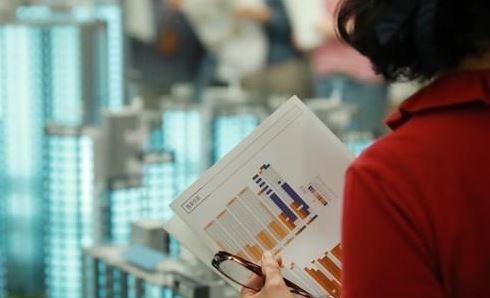[News Focus] Koreans question ‘fairness’ in apartment policy
By Kim Yon-sePublished : Nov. 1, 2020 - 15:38

SEJONG -- In his speech at Cheong Wa Dae in mid-September, President Moon Jae-in expressed his willingness to provide more houses for newlyweds and those in their 20s and early 30s.
The remarks came as part of his pledges to stabilize the real estate market by weeding out speculative investors.
Moon reiterated the importance of fairness in the sectors such as employment, education, military draft, society and culture. He also commented the apartment supply for the young generation as a policy for fair market.
But the policy had already offered benefits to newlyweds via a “special supply” for them -- under the incumbent administration -- in a drawing for apartment subscriptions.
The special supply has lowered the probability of winning the lottery among those in their 40s and 50s, even as many of them and their households still do not own homes.
In real estate and several other major sectors, there have not been any particular benefits for the middle-aged under the Moon administration, while the bracket aged 40-59 posts the greatest figures in household expenditures from children education and payment burden for loans and interest. They are also the state’s core source for tax revenue.
Unmarried people in their 20s and 30s, or single-person households, also had to suffer unfairness in the housing lottery, compared to married couples in their same age bracket. Nonetheless, jobless young people have enjoyed subsidies -- in use of taxpayer money -- from the administration.
The tough real estate regulations have further weakened the apartment purchase capacity or opportunity among the have-nots.
In Seoul, mortgages are totally banned for apartment units priced 1.5 billion won ($1.32 million) and over. While mortgages -- for up to 40 percent of the property value -- are allowed for apartments priced 900 million won or under, it is not easy to find the price-level housing for the standard 84-square-meter units in the wake of skyrocketing trade prices in the capital.
Eventually, those with sufficient cash could be able to take over newly built apartments, as many subscription-lottery winners had to give up full payments.
In addition, newlyweds, sons and daughters from among the haves are estimated to be the biggest beneficiaries of the state’s special supply. According to reports, some newlyweds are estimated to have won drawings for Gangnam apartments relatively easily -- despite very low scores -- with their parents taking on large portions of the payments.
The administration has also frustrated many ordinary households in its policy for “jeonse,” Korea’s unique long-term rent system through lump-sum deposits. A recent argumentative jeonse policy, which is quite favorable for tenants, has agitated conflicts between tenants and homeowners. As a result, jeonse prices have soared in recent months.
Many online commenters say that it does not seem that the left-wing administration is actually pursuing fairness, apart from the de facto policy failure in real estate.
An online commenter said that some left-wing politicians, who hold apartments or land in Sejong, are calling for the National Assembly to relocate the nation’s capital from Seoul to Sejong.
One commenter said, “Some of them let their children go to elite high schools. But they are poised to abolish the elite schools.”
In the stock market, the administration is set to levy capital gains taxes up to 25 percent for individuals owning (and reaping gains from trading) a particular stock worth 300 million won or over. The policy is not applicable to foreign or local institutional investors.
Commenters shared the view that the “equality of opportunity” is vanishing in a variety of sectors.
In a speech last month, Moon said that fairness is the spirit of the “candlelight revolution,” referring to the impeachment of former President Park Geun-hye, backed by massive citizens’ demonstrations in late 2016.
In his inaugural speech on May 10, 2017, the president said the opportunity would be equal, the process would be fair and the result would be righteous.
By Kim Yon-se (kys@heraldcorp.com)







![[KH Explains] How should Korea adjust its trade defenses against Chinese EVs?](http://res.heraldm.com/phpwas/restmb_idxmake.php?idx=644&simg=/content/image/2024/04/15/20240415050562_0.jpg&u=20240415144419)











![[Today’s K-pop] Stray Kids to return soon: report](http://res.heraldm.com/phpwas/restmb_idxmake.php?idx=642&simg=/content/image/2024/04/16/20240416050713_0.jpg&u=)